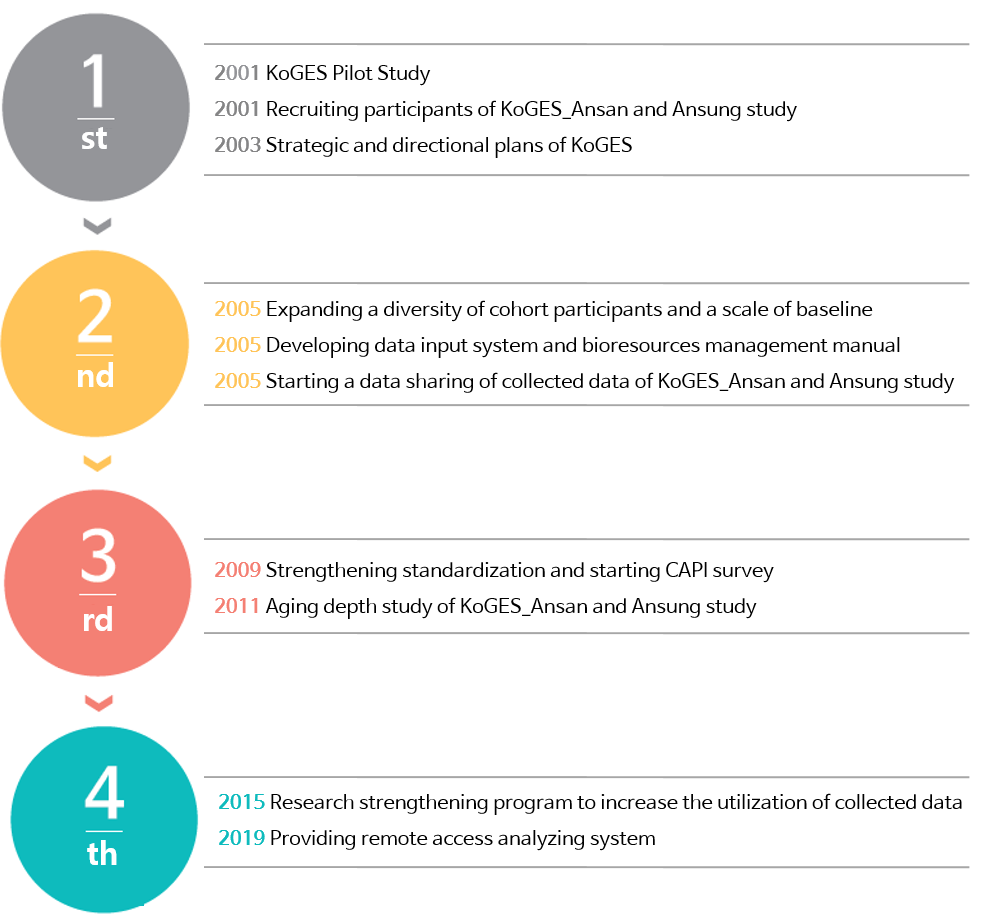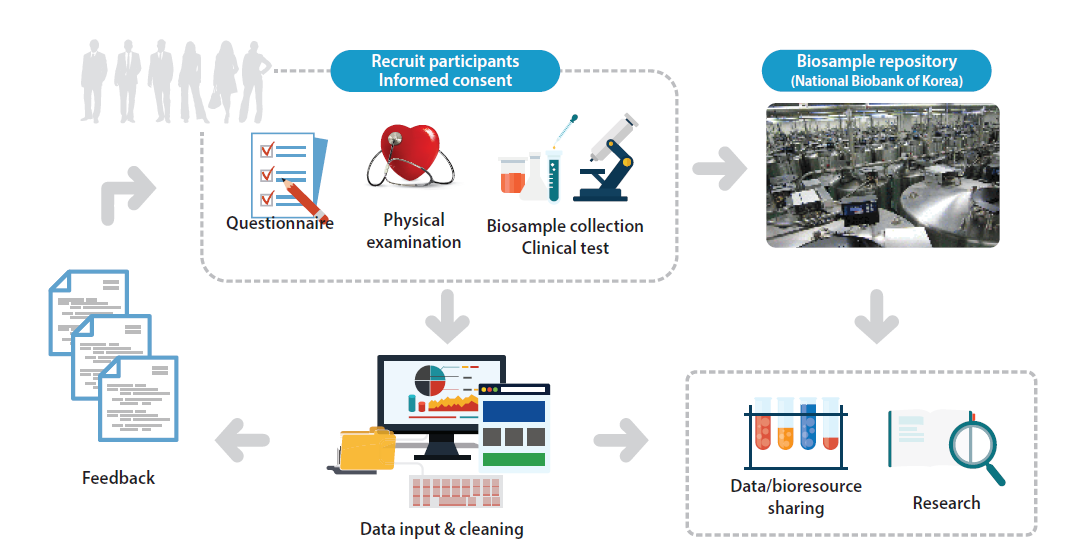Overview
The Korean Genome and Epidemiology Study (KoGES) collects epidemiological data and biospecimen, such as blood, urine, and genome from large scale cohort of 40-69 years old by conducting medical examination and health survey.
Mission
- To develop health and biological indicators and identify risk factors of common chronic diseases, such as Type 2 Diabetes, hypertension, metabolic syndrome, hyperlipidemia, osteoporosis, and cardiovascular disease
- To establish guidelines of chronic diseases by using collected epidemiological data and biospecimen
- To provide scientifically reasonable data that is based on the implementation of personalized medicine and prevention
Study progress

1st
- 2001 KoGES Pilot Study
- 2001 Recruiting Participants of KoGES_Ansns and Ansung study
- 2003 Strategic and directional plans of KoGES
2nd
- 2005 Expanding a diversity of cohort participants and a scale of baseline
- 2005 Developing data input system and bioresources managemant manual
- 2005 Starting a data sharing of collected data of KoGES_Ansan and Ansung study
3rd
- 2009 Strengthening standardization and starting CAPI survey
- 2011 Aging depth study of KoGES_Ansan and Ansung study
4th
- 2015 Research strengthening program to increase the utilization of collected data
- 2019 Providing remote access analyzing system
KoGES procedure

- 1. Recruit participants Informed comsent : Questionnaire, Physical examination
- 2. Biosample repository (National Biobank of Korea)
- 3. Data/bioresource sharing, Research
- 4. Data input & cleaning
- 5. feedback
KoGES design paper
- CLICK HERE to read the cohort background paper (Cohort Profile: The Korean Genome and Epidemiology Study (KoGES) Consortium)



